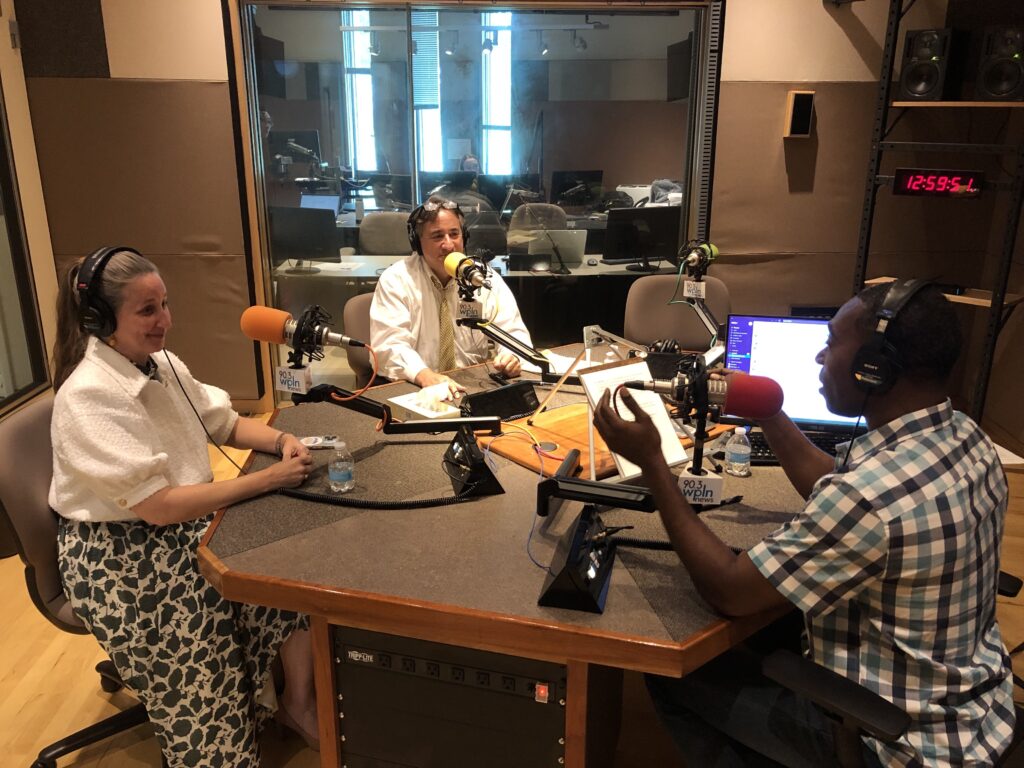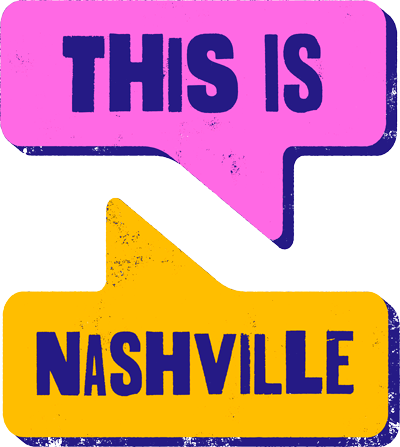
Between now and August 3rd, Nashvillians will cast their vote for the next mayor and Metro Council members. But they’ll also be choosing the next vice mayor, an office many know little about.
Even still, the vice mayor has a lot of influence over how Nashville’s Metro Council operates. In addition to presiding over council meetings, vice mayor also assigns members and chairs of legislative committees, casts tie-breaking votes and serves as a backup if the mayor resigns.
In this election, there are two candidates for vice mayor. Incumbent Jim Shulman is seeking another term, running against District 34 Council Member Angie Henderson, who says she wants to bring “a different perspective” to the office.
More: Citizen Nashville: What does the Vice Mayor do?
This is Nashville sat down with both candidates to ask how they’d approach the job. Their answers reveal that voters face a choice between two very different points of view.
Below you can read the candidates’ answers to a few of our top questions. This conversation has been edited for clarity and brevity.
QUESTION: What do you think Nashville’s biggest challenge is going to be in the next four years? And how specifically can the vice mayor help address that challenge?
Angie Henderson: I think we need to get back on track with many of the things that we have been speaking about for almost a decade now: transit affordability, land use policy. We have several strategic plans that we have not fully implemented from a policy perspective. And so your city council is your legislative branch. We do need actionable, accountable, adopted strategic plans. I was the policy subcommittee chair for our WalknBike strategic plan, and many of the recommendations of that plan are things that I have brought forward.
Jim Shulman: I happen to believe at this point that the most important issue that this city is facing is school safety — because of the things that have been happening in this nation, and because of the Covenant School. I believe that … this new council has to immediately focus. And we’ve already been focusing. Council Member Jeff Syracuse, who runs our Public Safety Committee, had a series of three meetings to talk about school safety. He had one at Hillsboro High School. That issue alone is going to take a tremendous amount of work — working with the school board, working with Dr. [Adrienne] Battle, working with the new mayor and the new administration.
QUESTION: We received a question from a listener for you, Jim — Why didn’t you put the Titans stadium deal on hold after the Covenant shooting?
Shulman: The Covenant school shooting was obviously a tragic thing for this city. And we’re still dealing with that . . . I don’t necessarily control when these bills move. That’s up to the sponsors of the bill. So I know there’s been discussions, particularly as the Speedway stuff has come up about making sure that there was plenty of time to look at these pretty complicated deals. The stadium deal had been studied for many months before the Covenant School shooting.
QUESTION: Angie, you said you want to lead some important bills through city council that make city council more of a check on the mayor. What do you say to people who think that that would be taking too much power as vice mayor?
Henderson: Right. And so I’m not saying that I would lead those initiatives. Again, it is looking at our strategic plans. Listening to council members about what their policy goals are . . . If you talk to this term, council members, they feel insufficiently supported, insufficiently prepared. And so it it really is about helping the body do the work. You know, when you have a 40-member body with a diverse interests, you’ve got to kind of see how people can work together to align those policy interests, to align those with our strategic plans and move things forward . . . And I just think you’ve seen us not be as productive, and the productivity has often relied on just the the energy or motivation of a smaller cohort of council members, because district council members are underwater. We are barely keeping our head above water, and council members need some support. And when they are better supported, that helps citizens feel that their government is is more responsive to them.
QUESTION: Being online isn’t the only way to engage with your constituents, but nowadays it is an important one. How do you engage with Nashvillians?
Shulman: What we try to do is send out the agenda every meeting so people can actually look at it. We started a process working with a news station in town where we invited different council members, every time we have a council meeting, to actually talk through what’s important on the agenda for that particular evening . . . And it’s a big city, big area. So you got to go to Joelton and you’ve got to go to Antioch. You’ve got to go everywhere in between. And so over the last four, five years as vice mayor, I try to be everywhere I can be to talk to citizens to find out their concerns, and the special subcommittees we’re in that we started at the last term were a part of just listening to what citizens were concerned about.
Henderson: I think you have to be both in-person and online, specifically because we are a 526 square mile county. Not everybody can get to every meeting. Having that engagement online is important. And, you know, the current vice mayor has started a new Twitter account every time he’s had a campaign. And then he doesn’t use that Twitter account at all. And, you know, journalists, community folks are online. And so there really is an important educating role that council members and the vice mayor can and should do. So, yes, Jim does send one email with the agenda. He did do, to his credit, some nice kind of online interviews during the pandemic. But I think we have to be very intentional about our social media communication to engage and educate the citizens around all these processes. Government can seem very inaccessible and unapproachable, and so not everybody can get to a meeting. And that’s really why I think we’ve got to be online.
QUESTION: How would you ensure that the workplace culture within our city government is positive and effective?
Shulman: There are certainly harassment policies and and nondiscrimination policies within metro government. So we make sure that is clear . . . We have a director of the council that runs that office and make sure that those policies are done. So we always want to make sure that people are treated well and that there is no discrimination, no harassment or anything like that. Same thing goes for anything that we might have any type of control over in terms of metro government. I mean, we’re a great city. It’s a great city to be in. Obviously, there are issues that we’re dealing with, but we want to treat people fairly.
Henderson: I think what you’ve seen in our body it is particularly divisive at this juncture. We’re not all getting along particularly well. I think that does go to leadership. I don’t think the vice mayor has a very strong record in this regard. You’ve seen that in his former leadership at Safe Haven. And I think you see that in the body. I think there are people that are concerned that the vice mayor picks favorites, can be petty . . . And so I don’t think current leadership has fostered a productive culture. And that is part of what motivates me to run.


